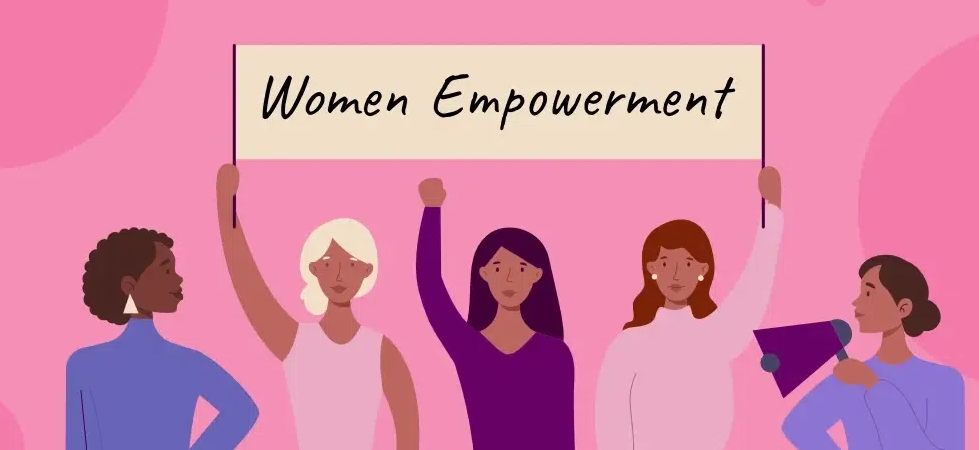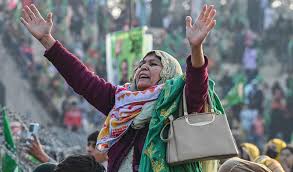By: Abrar Hussain
As a nation, we pride ourselves on our resilience and determination, yet we neglect a crucial segment of our population – our women. Despite comprising half of our society, Pakistani women face formidable barriers in the workplace, hindering our collective progress and prosperity. The statistics are stark: women make up only 22% of Pakistan’s workforce, with many facing discrimination, harassment, and unequal pay. This gender disparity not only perpetuates injustice but also stifles economic growth and innovation.
By excluding women from meaningful participation, we deprive ourselves of their unique perspectives, skills, and contributions. But the issue goes beyond mere numbers. Our societal attitudes and patriarchal norms restrict women’s choices, forcing them into predetermined roles and limiting their potential. We must challenge these biases and create an environment where women can thrive, free from gender-based constraints. Empowering women in the workplace is not only a moral imperative but also an economic necessity. Studies have shown that gender diversity in the workforce boosts productivity, creativity, and profitability. By tapping into the talents of our female population, we can stimulate entrepreneurship, innovation, and sustainable development. In fact, a McKinsey report estimates that if women’s participation in the workforce were to increase to match men’s, Pakistan’s GDP could increase by up to 30%.
To achieve this, we must implement policies and programs that promote gender equality, provide training and mentorship opportunities, and ensure safe and inclusive workspaces. We must also engage men in this conversation, encouraging them to become allies and advocates for gender parity. Furthermore, we need to address the root causes of gender inequality, such as gender-based violence, lack of access to education and healthcare, and societal pressure to conform to traditional gender roles. In addition, we need to recognize and challenge our own biases and privileges and work to create a more equitable and just society. This requires a willingness to listen, learn, adapt, and prioritize marginalized communities’ needs and perspectives. By doing so, we can unlock the full potential of our female workforce and create a more prosperous and inclusive Pakistan for all.
Moreover, empowering women in the workplace is not just a matter of gender equality, but also a key driver of economic growth and development. Women are more likely to invest their earnings in their families and communities, creating a multiplier effect that benefits society as a whole. Moreover, women’s participation in the workforce can help address some of Pakistan’s most pressing challenges, such as population growth, education, and healthcare.
To achieve this, we need to create a comprehensive framework that addresses the various barriers faced by women in the workplace. This includes implementing policies such as paid maternity leave, flexible work arrangements, and protection from harassment and discrimination. We also need to invest in education and training programs that equip women with the skills and knowledge they need to succeed in the workforce. Furthermore, we need to challenge our societal attitudes and norms that restrict women’s choices and limit their potential. This requires a sustained campaign to raise awareness and promote gender equality, involving media, civil society, and government. We also need to engage men in this conversation, encouraging them to become allies and advocates for gender parity.
Additionally, we need to address the issue of gender-based violence, which is a major obstacle to women’s participation in the workforce. This requires a comprehensive approach that includes legislation, law enforcement, and community engagement. We also need to provide support services for survivors of gender-based violence, such as counseling, legal aid, and shelter. Empowering Pakistani women in the workplace is not only a matter of justice but also a strategic investment in our nation’s future. By unleashing the potential of our female workforce, we can unlock unprecedented growth, prosperity, and progress. Let us shatter the glass ceiling and create a Pakistan where every individual can contribute, thrive, and excel.
Furthermore, we need to recognize the contributions of women who have already made a significant impact in various fields, such as education, healthcare, and entrepreneurship. We need to celebrate their achievements and create role models for future generations. We also need to provide opportunities for women to take on leadership roles and participate in decision-making processes. We need to work towards creating a more inclusive and diverse workforce, where everyone has an equal opportunity to succeed. This requires a commitment to gender equality and a willingness to challenge our own biases and privileges. Doing so can create a more prosperous and inclusive Pakistan for all.
The writer is a student of Politics. He can be reached at abrarhussainchandio14@gmail.com
















